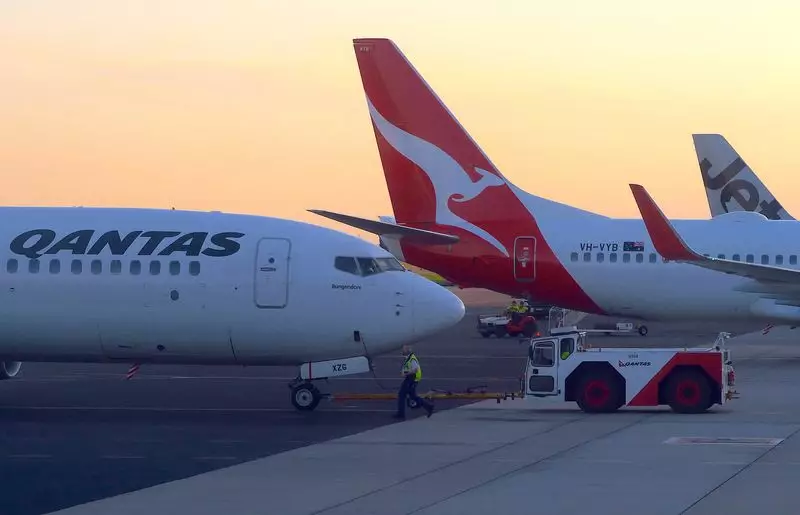In a landmark decision, Australia’s Qantas Airways has been mandated by a federal court to compensate three baggage handlers who were unlawfully dismissed during the tumultuous period of 2020. The court’s ruling comes with a hefty total of A$170,000 (approximately $114,000), divided into payouts of A$30,000, A$40,000, and A$100,000. The judgments are not merely punitive; they serve to reflect the emotional and professional harm sustained by these workers after being let go as part of Qantas’s move to prevent potential industrial action. Federal Court Judge Michael Lee’s pronouncement that these payouts should be treated as “test cases” highlights the potential for further complications regarding approximately 1,700 other former employees who also lost their jobs in similar outsourcing maneuvers.
Qantas defended its actions by claiming that the job cuts were necessary as a cost-saving tactic amidst the severe financial conditions imposed by the COVID-19 pandemic. However, the court found this argument unconvincing. Judge Lee stated that had Qantas lawfully outsourced its ground handling operations in 2020, it would have still proceeded to do so in 2021, potentially saving the airline A$100 million annually. This admission raises questions about the airline’s commitment to ethical labor practices and its broader operational integrity during a crisis.
The implications of the case extend beyond the immediate payouts; they carry significant weight for the reputational recovery efforts of Qantas. Since the pandemic, the airline has faced numerous challenges, including a class-action lawsuit related to selling tickets for already canceled flights shortly after Australia reopened its international borders. Such incidents have marred Qantas’s public image, raising critical concerns about its operational transparency and commitment to consumer rights.
The recent ruling is a pivotal moment for Qantas, one that could dictate its future interactions with both current and former employees. The Transport Workers Union (TWU), which represents the dismissed workers, is adamant that Qantas must now take definitive steps to repair the fractured trust. Michael Kaine, the National Secretary of the TWU, emphasized that the airline has consistently prolonged this case, denying justice to its workers. His call for Qantas to demonstrate genuine accountability echoes the sentiments of many who believe that corporate giants must learn from their missteps.
Qantas’s new CEO, Vanessa Hudson, recently acknowledged the airline’s need to reflect on its past actions. The public apology extended to the affected workers indicates a willingness to improve, but as the saying goes, actions speak louder than words. Hudson’s leadership will be under scrutiny as the company navigates negotiations for compensation concerning the wider group of unlawfully dismissed employees.
As Qantas prepares for a critical court session on November 15 regarding broader employee compensation, the stakes are undeniably high. The outcome of this case may well dictate the future of labor relations within the airline and could serve as a blueprint for ethical practices across the aviation sector. With the weight of these legal rulings pressing down, Qantas is faced with an urgent imperative: to not only compensate those who were wronged but to rebuild a tarnished reputation and restore faith among its employees, passengers, and the community at large.

